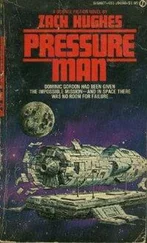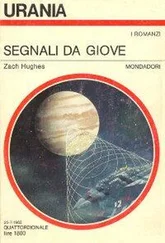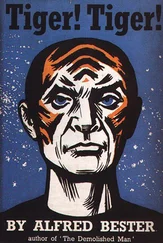Zach Hughes - Tiger in the Stars
Здесь есть возможность читать онлайн «Zach Hughes - Tiger in the Stars» весь текст электронной книги совершенно бесплатно (целиком полную версию без сокращений). В некоторых случаях можно слушать аудио, скачать через торрент в формате fb2 и присутствует краткое содержание. Жанр: Фэнтези, на английском языке. Описание произведения, (предисловие) а так же отзывы посетителей доступны на портале библиотеки ЛибКат.
- Название:Tiger in the Stars
- Автор:
- Жанр:
- Год:неизвестен
- ISBN:нет данных
- Рейтинг книги:3 / 5. Голосов: 1
-
Избранное:Добавить в избранное
- Отзывы:
-
Ваша оценка:
- 60
- 1
- 2
- 3
- 4
- 5
Tiger in the Stars: краткое содержание, описание и аннотация
Предлагаем к чтению аннотацию, описание, краткое содержание или предисловие (зависит от того, что написал сам автор книги «Tiger in the Stars»). Если вы не нашли необходимую информацию о книге — напишите в комментариях, мы постараемся отыскать её.
Tiger in the Stars — читать онлайн бесплатно полную книгу (весь текст) целиком
Ниже представлен текст книги, разбитый по страницам. Система сохранения места последней прочитанной страницы, позволяет с удобством читать онлайн бесплатно книгу «Tiger in the Stars», без необходимости каждый раз заново искать на чём Вы остановились. Поставьте закладку, и сможете в любой момент перейти на страницу, на которой закончили чтение.
Интервал:
Закладка:
sadness. Still he pressed on, stargazing, plotting, leaping zigzag, covering the stars in a 400-parsec arc and swinging back, slowly, methodically, blinking in and out of time and space, using more time to approach a planet than in the travel from star to star. He was driven. He realized it. He believed the urge came from within himself, his need to find human company, to fill his empty cabins and corridors with laughing, warm, human forms. Behind him, blanked from his sensors, the dark ship followed with infinite patience. CHAPTER FOUR Commander Walker Heath was not happy on the moon, nor was he happy in his job. He felt that he'd been shafted when he was pulled off the blink project and he felt even more strongly that the service and the whole world had been shafted when Congress cut the funds of the project and, in effect, put it in eternal mothballs. Heath felt that he was being wasted, putting the same old information into the computer and coming out with the same old answers. He thought the work of Section X was a waste of time and he did not hesitate to tell anyone who would listen exactly how he felt. He'd always been that way and that explained, he knew, why he was only a commander after 80 years in the service. A tall, perpetually rumpled man. Heath had a shock of iron gray hair the consistency of small wire, a strong hooked nose, dark unhappy eyes and a mouth that smiled, his subordinates said, once every 50 years. He was brilliant, one of the three top drive engineers in the world. He was vocal. He was a man with an extremely short fuse. He believed in space and he believed that the salvation of mankind lay in space and he believed in the blink drive. He knew the hydrodrive inside out, had been mostly responsible for some improvements through the years, and he'd been on the first Centauri expedition. He had tried his best to convince the brass
to let him ride one of the blink test vehicles. He had been at the console for
each of the eleven blink tests. He knew the blink drive worked. He, himself, had pushed the button that sent the first blink vehicle a full light-year from Earth and he himself had pushed the button that sent the last ten off into nowhere. The first returned with proof she'd been out there, salt and Stardust on her tail. He had been a witness to the worth of old John Blink's wild-eyed idea of drawing power from the stars, from the sun. He
had seen the test vehicle blink out one full light-year and he'd seen it blink back, all in the period of five minutes, with almost all of that time spent beyond, farther from Earth than any man-made object had ever ventured. Walker Heath had watched man open up the universe and he'd seen the universe shoot back and close itself, swallowing ten blink vehicles without a clue. They left and they didn't return. He knew they went out, because he could follow them with his instruments. A blinking ship sent a signal ahead of itself through time and space and made subtle disturbances of the very warp of the universe. All that could be measured. The first time
the ship blinked out, rested, blinked back, there was jubilation at the blink base on the dark side. He wanted to ride the second one and they wouldn't allow him. And it didn't come back. Heath had smelled the far stars and he'd had to settle for a plodding, sublight drive to Centauri. He had that, at least. They couldn't take that away from him. He'd been to the stars, even though it was a near star. He knew that man would, eventually, discover the flaw in the blink drive and—shooting outward in millions—populate the planets of a thousand, a million stars. But at the moment he was facing a worried young first nav. officer across a cluttered desk, explaining why it would be useless for her to run the same information through his computer that he'd run 100 times. «Think you're going to find something the old man didn't?» he demanded crossly. «No,» Hara said. «I just want to know all there is to know about it.»
«All there is to know,» Heath said, «is that they lift off at one end or the other and they don't land.» «You must have some ideas,» Hara said. «I have the idea that something happens to them,» Heath said. «But what?» she insisted. «They disappear.» «Why?» «They are eaten by a space dragon.» «Now we're getting somewhere,» Hara said with a smile. «At least that's a working theory.» Heath used his smile for that 50 years. «I like that,» he said. «Tell me about it,» Hara said. «Let's start from the beginning.» In the beginning, five ships went out toward the Centauri systems. They left at one-week intervals from the relatively new moon base and they stayed in contact for a few weeks and then they were simply out there on their own. Then, ten years later, they began to return. Ships one, two, three and four. That was it. Number five didn't come back. Five was lost in space, and memorial services were held on Earth and on the moon. But everyone was excited by man's first trip to a star, a trip that discovered two life-zone planets and several planets with raw materials greatly needed on Earth. The first colony ship went out and traffic became relatively dense between Earth and the Centauri systems, moving slightly less than light speed, taking ten years to complete the round trip. In 30 years a good sized colony was formed on each of the two habitable planets, and government ships were bringing back cargoes. Then the government opened up space to free enterprise making it possible for a venturesome man to buy his own ship and make the Centauri run. Three runs would take 30-plus years out of a man's life, but if they were successful runs he could spend the rest of his years any way he wanted. With life expectancy up to almost 200, most of it healthy and active, 30 years didn't seem a long time to men like Plank, who worked the planetary system to earn the down payment on a starship and then went winging outward to achieve their goals. There were casualties. Power failed on an incoming freighter, and she crashed into a crater and pulverized. But casualties were to be expected. A crash into the moon was something people could understand. The dead
were given funeral rites suitable to space heroes, and other ships went out. «In the first 30 years, the unexplained disappearances were few,» Hara said. She was getting the facts verbally from Heath and from the computer readouts. «You'll notice that their frequency increases by a geometric ratio.» Heath said. «And, as they increased, the service began to make efforts to hush them up,» Hara said. «Had to,» Heath said testily. «The nuts were on to it. They were talking about how it was wrong to push into God's universe, and that God was warning us to stay home.» «According to this printout, a full two-thirds of all the disappearances have not been made public,» Hara said. «Aren't we risking the reputation
of the service? There's enough opposition to space spending as it is. If the not-so-loyal opposition should find out we've covered up some rather serious information…» «They'd have the secretary's head for lunch,» Heath said. «And they'd push a 50 percent cut in funds through Congress.» He leaned back in his chair and put his feet on the desk. «But we've painted ourselves into a corner. At first we held back on giving out information about a ship here, a ship there. Then the total was so high that we couldn't release it all at once. Total shock if we suddenly announced that, instead of nine or ten ships, more than 30 have just vanished in space.» «Forty counting the blink test vehicles,» Hara said. «Not the same thing,» Heath said. «We're dealing with the true unknown, in the case of the blinks. We're entering a new ball game with a
different set of rules. With the blink, it's just a matter of insufficient data.» «I don't see the difference,» Hara insisted. «Both types of ship disappear.» «But the manned ships do so in time and space,» Heath said with some irritation. «Are you sure that the blink ships don't?» When Heath looked at her blankly, she continued. «Could your instruments see or detect the blink ships at the other end of the jump?» «I like that,» Heath said. «No.» «So you're not sure that the ships didn't blink back into normal space and then disappear.» «It could have happened that way,» Heath admitted. «Yes, I like that.» He scratched his left knee musingly. «I see what you're getting at, young
Читать дальшеИнтервал:
Закладка:
Похожие книги на «Tiger in the Stars»
Представляем Вашему вниманию похожие книги на «Tiger in the Stars» списком для выбора. Мы отобрали схожую по названию и смыслу литературу в надежде предоставить читателям больше вариантов отыскать новые, интересные, ещё непрочитанные произведения.
Обсуждение, отзывы о книге «Tiger in the Stars» и просто собственные мнения читателей. Оставьте ваши комментарии, напишите, что Вы думаете о произведении, его смысле или главных героях. Укажите что конкретно понравилось, а что нет, и почему Вы так считаете.




